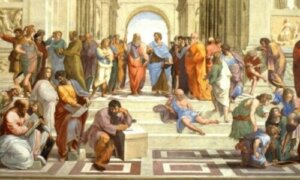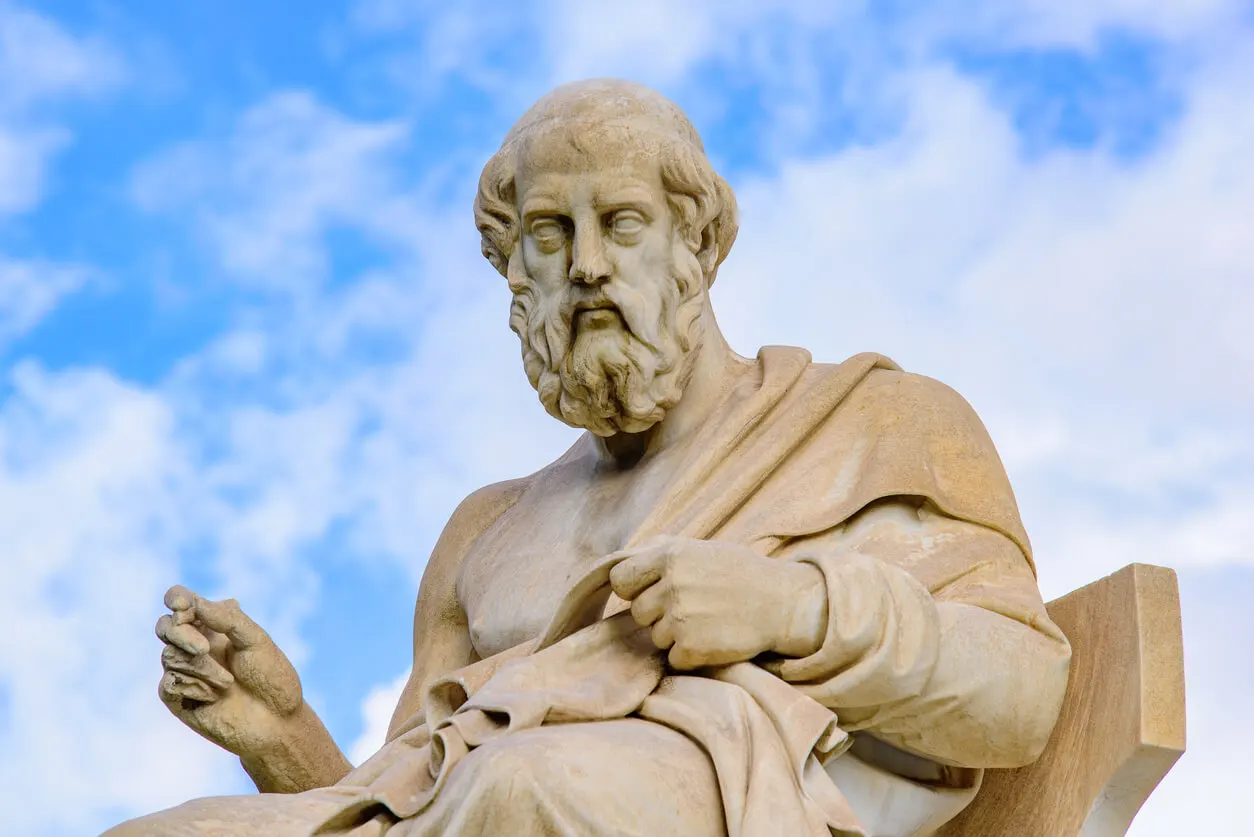What Are the Differences Between Philosophers and Sophists?

Anyone interested in the history of philosophy should know the differences between philosophers and sophists – two intellectual groups of ancient Greece that were at loggerheads because of the irreconcilable disparity between their theoretical and methodological precepts.
In this sense, we can say that the sophists were enemies of the philosophers of the time. For, according to the latter, the sophists only used their persuasive ability to teach fallacious arguments to society, leading it away from true knowledge.
The Greek philosophers who most opposed the sophists were Socrates, Plato and Aristotle, whose criticisms fostered a negative acceptance of them throughout history. Let us see, then, what their main differences were.
The Sophists in history
First of all, it’s relevant to point out that the term sophist comes from the Greek sophos, which means ‘wise man’. Therefore, it originally referred to the great thinkers and teachers of ancient Greece.
However, from the 5th century BC onwards, the term began to acquire a pejorative and degrading tinge. For their detractors (natural philosophers) accused them of not knowing the true origin of things.
From there, the sophists went from being masters of wisdom or connoisseurs of life to master charlatans, tricksters, or false sages. In fact, philosophers such as Plato and Aristotle began to accuse them of being cheats for using rhetoric and dialectics to deceive people:
The sophist seems to be a philosopher, but he is not, since he abandons the path of truth and cultivates distrust, regarding the possibility of reaching universal knowledge and the existence of political and ethical principles that govern relations between men.
But who were the Sophists really, and why did some renowned philosophers accuse them of being charlatans?
The Sophists were travelers who had got to know cultures that were very different from the Greek culture. Thus, they came to question whether laws and customs were the result of simple agreement, social convention, or nature.
They advocated a relativistic interpretation of reality. Objective truth didn’t exist, but was constructed from the opinion of the majority.
Therefore, instead of seeking true knowledge (like the philosophers of the time), they focused on teaching oratory, so that citizens would succeed in society and politics. Among the most prominent sophists were Protagoras, Gorgias, Thrasymachus and Critias.

Also read: What Is Hellenistic Philosophy?
5 differences between philosophers and sophists
Now, the main differences between philosophers and sophists can be summarized as follows. Let us see.
1. Their position on truth
As we said, sophists adopted a relativistic and skeptical position on truth. They believed that there were no universal laws or objective truths governing the universe. And, if there were, they argued that they could not be known.
In contrast, the Greek philosophers believed in the existence of an objective truth that governed the entire universe. Therefore, they criticized the Sophists, claiming that they taught false knowledge.
2. Imposition versus exposition
Another difference between philosophers and Sophists concerns the use of knowledge. In this case, the Sophists taught that anyone who wanted to succeed in public life would have to know how to impose and convince in the assemblies of the people. That is to say, everything he affirms must be shown to be true, even if it is not.
To do this, one must have good eloquence and rhetoric, since the only way to seduce the ignorant masses is through words. For his part, the philosopher doesn’t seek to impose any knowledge. Instead, he seeks to put forward arguments based on logical reasoning.
In fact, the philosopher puts forward his knowledge and is open to analyze any counterargument that refutes his position. This is because he doesn’t believe himself to be the creditor of absolute truth.
I only know that I know nothing.
3. Lucrative activity versus love of knowledge
The Sophists were the first thinkers to charge money for their teachings, which was an issue that was quite criticized by the philosophers of ancient Greece.
In this sense, the sophists demanded to be paid before they taught anything. On the other hand, philosophers could teach even if they weren’t paid. For what mattered to them was the diffusion of knowledge and access to the one truth.
Discover more: Plato’s Myth of the Cave: Meaning and Teachings
4. The aim of teaching
The Sophists, believing that truth was man-made, focused on oratory and eristics to ensure the success of citizens in the public affairs of society. In contrast, the philosophers were after true knowledge.
To this end, they taught logical and coherent thinking. In addition, they invited questioning and constant reflection, as they considered them the only way to access the truth.

5. The ethics behind the teachings
We close the differences between philosophers and sophists with an ethical issue. In this case, it has been claimed that the sophist didn’t care whether what they taught was good or not; what mattered to them was to be paid for their work.
On the other hand, it is said that pay took second place in the case of philosophers. What really mattered was the teaching itself and the acquisition of knowledge.
It isn’t all criticism
It’s relevant to note that not all philosophers have criticized the work of the Sophists in ancient Greece. From the nineteenth and twentieth century onwards, some thinkers such as Nietzsche and Grote tried to vindicate the philosophical importance of this group of intellectuals.
According to these authors, the Sophists were true philosophers, whose doctrines should be analyzed as serious positions.
All cited sources were thoroughly reviewed by our team to ensure their quality, reliability, currency, and validity. The bibliography of this article was considered reliable and of academic or scientific accuracy.
- Cadavid L. Los sofistas: maestros del areté en la paideia griega. Revista Perseitas [Internet]. 2014 [consultado 22 feb 2022]; 2(1):37-61. Recuperado de: https://www.redalyc.org/articulo.oa?id=498951552004
- Santamaría F. Los nuevos sofistas. Foro de Educación [Internet]. 2005 [consultado 22 feb 2022]; 3(5-6):85-94. Recuperado de: https://www.redalyc.org/articulo.oa?id=447544582010
- Taylor C y Lee M. The Sophists [Internet]. California: Stanford Encyclopedia of Philosophy; 2020 [consultado 22 feb 2022]. Diponible en: https://plato.stanford.edu/entries/sophists/
This text is provided for informational purposes only and does not replace consultation with a professional. If in doubt, consult your specialist.








